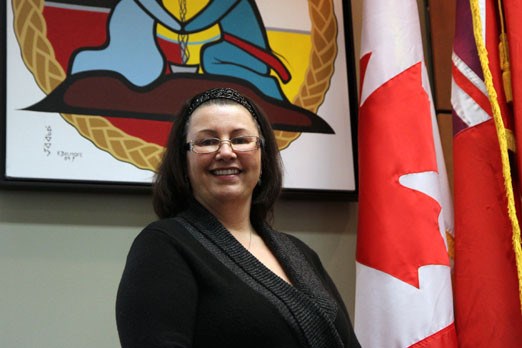THUNDER BAY - A decision in the misconduct hearing against Justice of the Peace Anna Gibbon is expected to be handed down early next year.
Final submissions by counsel were presented on Friday to the panel of presiding judges consisting of Timothy Lipson, Holly Charyna, and John Tzanis.
A hearing panel was first convened in January 2021 and the case was presented through several hearings held in June and July.
It is alleged that Gibbon advocated on behalf of her son who was facing charges under the Highway Traffic Act from February 2019.
The notice of hearing alleged Gibbon “acted as an advocate for her son in respect of his legal matter and attempted to persuade, threaten and/or intimidate the prosecutor, the Supervisor of Court Services and/or the Regional Senior Justice of the Peace into having the charge against her son withdrawn or stayed.”
The allegations include Gibbon calling the prosecutor involved in her son’s matter seeking a resolution. A sticky note was also attached to her son’s offence certificate by court staff advising that Gibbon is his mother and therefore a potential conflict.
Gibbon argued that this created a denial of justice for her son because he was no longer anonymous to prosecutors of members of the judicial office.
But presenting counsel Linda Rothstein said he was not entitled to anonymity in the justice system.
“The frank reality, there is no conflict of interest provided they don’t have any personal relationship with the person they are prosecuting,” she said.
Rothstein said there is no problem with providing advice or support to a family member on a legal issue, but that Gibbon crossed the line when she decided to speak to those involved in her son’s case.
Rothstein added that it “leads her, in my view, to blame others [. . .] for the problems that befell her son.”
The notice of hearing also alleged that Gibbon “disclosed confidential information about the Council’s investigation into her conduct to a court clerk and made disparaging remarks to the court clerk about court staff.”
Gibbon also invited the Justice of the Peace presiding over her son’s case to a dinner party, with Rothstein arguing that Gibbon does not acknowledge the lines being blurred, but only that the optics were not good.
“One of the reasons why that is so and continues to be so is that her worship has put forward what amounts to a very mistaken view of what the principals allow her to do, allowed her to do, and not allowed her to do,” said Rothstein said.
Defense counsel, Eugene Bhattacharya, told the panel that Gibbon and her experiences as an Indigenous person in the community resulted in her having concerns for her son and how he was being treated by a government institution, which she is also a part of.
“I don’t offer the circumstances of her explanation of her behaviour as justification, the word I would use is explanation,” he said. “You have an explanation to her reaction. You may describe it as an overreaction. But it does not meet the test of clear, cogent evidence to make it a finding of misconduct.”
During his submission, Justice Lipson said some of the incidents described may not constitute judicial misconduct, but he asked Bhattacharya if taken as a whole does it form a pattern that does amount to judicial misconduct.
“I’m not going to tell you that you can’t do that. It’s open to you to look at each piece of evidence,” Bhattacharya said.
“If you take some not on its face of being misconduct, but a pattern of conduct, you have the jurisdiction to do that based on a full review of the evidence. I plead with you not to. If you believe my client, you can do the first step and not the second step.”
If the complaints are upheld, Gibbon could face a warning, a reprimand, be ordered to apologize, suspended with pay for any period of time, suspended without pay for 30 days, or a recommendation she be removed from office.
Gibbon was appointed as Justice of the Peace for the Ontario Court of Justice in 2013 and previously served as the city of Thunder Bay’s first Aboriginal liaison.
She has since been reassigned to another court location. The panel will provide a progress report on their decision in January 2022.
